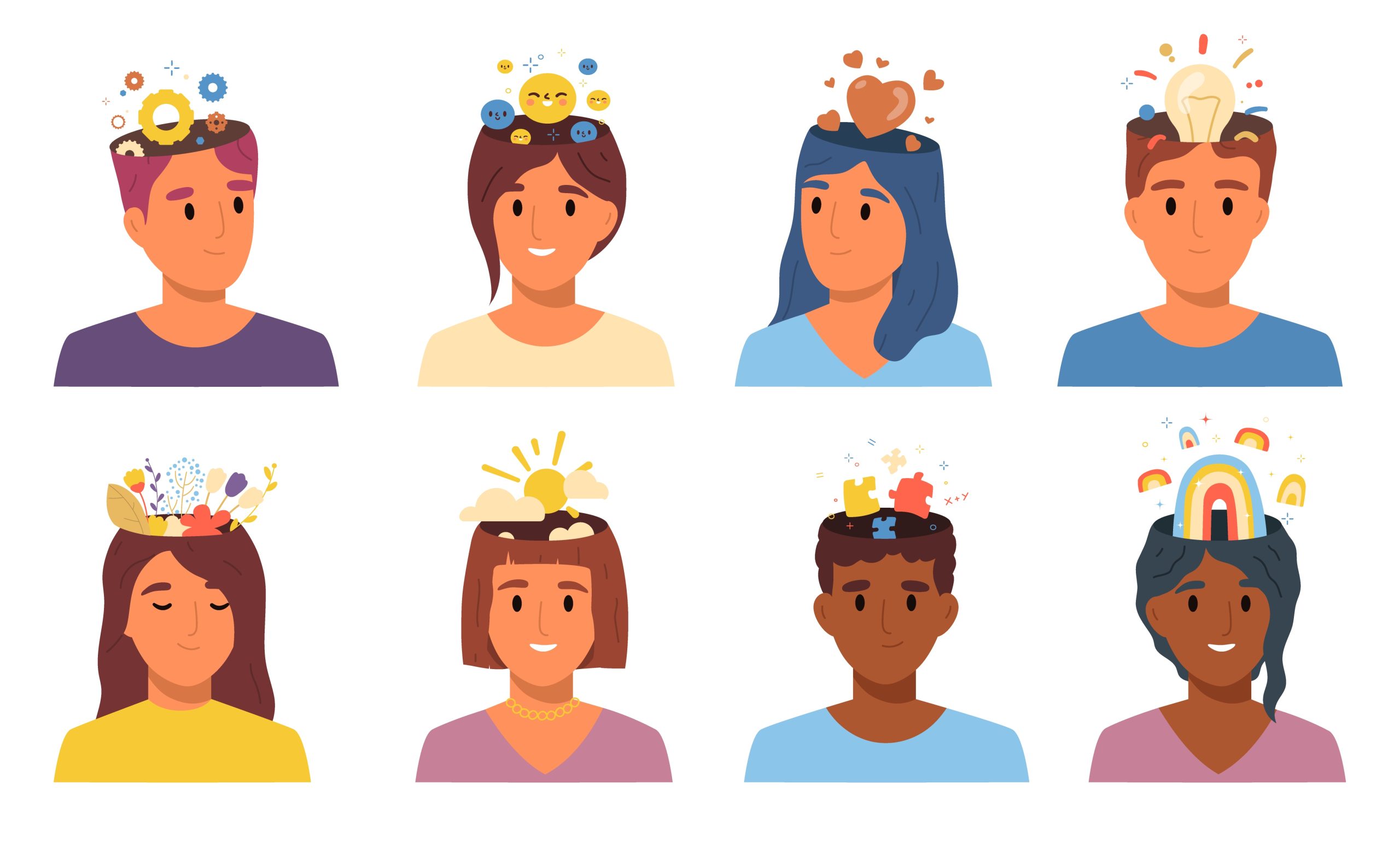Clive’s November Blog – Neurodiversity, What is it?

First, a little bit of background for you. I have a love/hate relationship with the word ‘diagnosis’.
To explore this word further, I’m going to describe it in two different contexts – although they may overlap. Please bear with me…
A physical ‘diagnosis’ – EG for an illness or an injury, is usually beneficial, because it can lead to treatment and healing. Assuming, of course, that it is a correct diagnosis. Some diagnoses may contain bad news which can induce shock and trauma – but all that is for another time. Perhaps another blog?
Mental, psychological or neurological diagnoses are quite different and they can vary widely.
As individuals we are all different. A diagnosis can be a welcome relief as we can then understand ourselves better. For example, dysphoria can cause a feeling of confusion and anxiety, so the diagnosis may allow us to receive help or special attention of some sort which will support and guide us in the future.
However, sometimes a diagnosis can create stigmatisation and lead to frustrations, if others don’t understand. Much also depends upon who makes the diagnosis and how they make it. Also how they explain and describe it and the possible consequences and benefits.
A diagnosis is only part of a solution. Psychoeducation combined with medication, if applicable, can often produce the best solution/outcome.
There has been much talk recently about ADHD, which is attention deficit hyperactivity disorder and ADD which is attention deficit disorder. Note the final word used in the diagnosis which is ‘disorder’.
Semantics are important. ‘Disorder’ and ‘disability’, for example, tend to produce negative vibes. A good example of this, is the official description of a ‘learning disability’ which includes an IQ of below 70, a reduced ability to cope independently and impaired social functioning. Not encouraging.
A better description might be learning ‘difficulty’ which is experienced by many people with ADHD and ADD and other similar conditions.
Interestingly, a new descriptive model has been created called ‘VAST’ or variable attention stimulus traits. There is a book about it, called ADHD 2.0 by Drs Edward Hallowell and John Ratey. As you will note from the title, it is quite similar to ADHD. VAST is a strengths based model to help challenge negative words, views or cultures.
In the past, these have all been known generally and not necessarily accurately as ‘developmental disorders’.
So, in addition to removing the ‘disorder’ word, there is now a push to focus on our brain ‘differences’ rather than ‘deficits’.
Neurodiversity. Thanks for sticking with me; you really did need a little background to arrive at this point.

There has been an increase in the use of the term ‘neurodiversity’ (the concept that brain differences are natural variations not deficits, disorders or impairments). Also ‘neurodivergent’ (similar meaning but coming from a slightly different source).
These refer to the concept that certain ‘developmental disorders’ are ‘normal’ variations in the brain. The point is made that people who have these features also have certain strengths. They close the gap with those considered to be ‘neurotypical’.
Neurodiversity is not the same thing as ‘disorder’ or ‘disability’. However, people who have these features may need some adjustments and/or support at work or at school.
ASD or autistic spectrum disorder is also termed ‘developmental’ and falls into the Neurodiversity camp. Once again, note the unhelpful last word of the diagnostic description. Might be better as autistic spectrum condition.(ASC) even the word ‘developmental’ is not strictly accurate.
See what I mean about ‘semantics’?
In addition to ASC, ADHD and ADD, neurodiversity commonly refers to people with dyslexia, dyspraxia, dyscalculia and a host of similar conditions/presentations.
Some children can ‘fall through the cracks’ when it comes to securing academic support, but with the neurodiversity approach, a much wider net is cast which should catch all of them. The use of the term also means that there is a shift away from the use of the ‘disability’ word, and there is a value in that because it moves the focus from the legal definitions of disability and includes larger groups, so the person may not have a documented, learning, disability, disorder or difference.
Please note that, legally, ADHD is classified as a disability which is important for employment.
With neurodiversity, stigma and stress are reduced and teachers and employers can think creatively about how to help different kinds of workers to utilise their special skills and minimise any difficulties, so you can see how this can move into flexible working, design and preplanning. Moving away from impairments to focus on what someone is good at and not what they lack.
For example, people with dyslexia can perceive certain kinds of visual information better than those without the condition. This can be useful in jobs like engineering and computer graphics.
In a broader view, it’s interesting how nature, through ‘natural selection’ has favoured these behaviours, because there must be a genetic advantage of some sort. A very long time ago, it might have helped us around social interactions or to find food or to move away from danger.
More research is needed, but experts think that the genes for these neurodiverse conditions stick around. Although there is a general move away from the disability and disorder words, it’s going to take a while for the workplace and school settings to adjust to the new thinking, but adjust they will.
So, in the meantime, let’s celebrate diversity in general and neurodiversity in particular. It is probably key to the development and progression of any organisation.
Oh, and do be careful what you diagnose or have diagnosed.
I will tell you more about that in another blog at another time!
Some useful websites: The Brain Charity WebMD
Please note: This blog is based on personal experience, opinions, observations, knowledge and desk research but I have no qualifications and make no claims about the accuracy of the information. Readers should always obtain professional advice on these matters.
My thanks go to Maria McGrogan, a friend and trainee psychotherapist who has carried out research on how therapy meets the needs of adult females with ADHD and whose helpful observations improved the first draft.
November 2023 Blog

